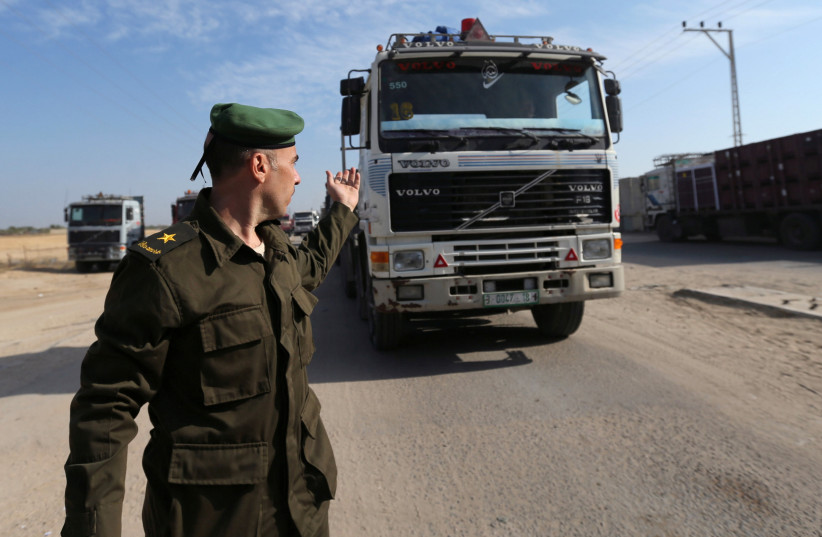UN Secretary-General Antonio Guterres on Friday appealed for the monitoring of aid deliveries to the Gaza Strip from Egypt through the Rafah crossing to be "adjusted to allow many more trucks to enter Gaza without delay."
Ten additional aid trucks have gotten into Gaza amid Israel's aerial bombardment but more fuel is needed, White House spokesman John Kirby said on Friday.
Kirby also said he has seen reports about Israel expanding its ground operations in Gaza but would not comment on that.
Rafah is the main crossing in and out of Gaza that does not border Israel. It has become the main point of aid delivery since Israel imposed a "total siege" of the enclave in retaliation for an attack by Palestinian Hamas terrorists from Gaza on October 7.
"The humanitarian system in Gaza is facing a total collapse with unimaginable consequences for more than 2 million civilians," Guterres said in a statement.
The United States is leading negotiations with Israel, Egypt and the UN to try and create a sustained delivery mechanism for aid to Gaza. They are wrangling over procedures for inspecting aid and bombardments on the Gaza side of the border.
Each truck has to offload its cargo at a checkpoint for inspection for possible arms and ammunition, then they are reloaded when the check is complete, UN World Food Programme Executive Director Cindy McCain said in an interview with Reuters on Thursday.

"The verification system for the movement of goods through the Rafah crossing must be adjusted to allow many more trucks to enter Gaza without delay," Guterres said.
A sharp reduction in aid
Before the conflict about 500 trucks a day were crossing into Gaza, but in recent days, an average of only 12 trucks a day have entered, he said.
Guterres welcomed growing calls for a humanitarian pause in hostilities and said, "I repeat my call for a humanitarian ceasefire, the unconditional release of all hostages, and the delivery of life-saving supplies at the scale needed."
While there have been some limited deliveries of food, water and medicine since Saturday, no fuel has been allowed in. Israel is concerned about the possible diversion of fuel by Hamas.
Fuel is essential to power hospitals, water desalination plants, food production and aid distribution, Guterres said.
Describing the situation in Gaza as "desperate and dramatic" the UN chief said the United Nations will not be able to continue delivering assistance inside the enclave "without an immediate and fundamental shift in how aid is going in."
